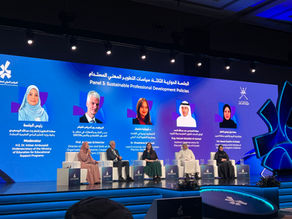RBK INTERNATIONAL ACADEMY SUPPORTS CLIMATE ACTION THROUGH VARIOUS ACTIVITIES.
- SDSN Youth

- Feb 18, 2022
- 3 min read
Written by Abigail Chifusa, (Project Officer)
RBK International Academy (RBKIA) Students in India, alongside their Teacher, Amruta Ghayal, took part in different activities that support SDG 13: Climate Action.
Students from grades 2 to 11 at RBKIA were part of the 6 week program that brought together 1,000 classrooms from around the world to examine climate change and environmental literacy. The students progressed throughout weekly activities by exploring causes, effects and solutions to climate change.
As part of their Climate Action Project, RBKIA students were provided with different lesson plans which helped them understand the science behind Climate Change and how it is affecting various parts of the earth. These activities enabled them to practice more research, communication, critical thinking skills, and collaboration. The students used this opportunity to explore different products based on Climate Change.

In addition to coming up with posters, infographics and presentations, RBKIA students also took action for different causes that they were passionate about which were: tree planting, tending to their gardens, composting, home based projects on the reduction of electricity consumption, and collecting plastic bottles and other waste to donate it for recycling. The secondary school students designed and created a prototype for segregation and disposal of waste called the “Recycle Bin ATM” and conducted a waste segregation and disposal drive in their respective homes.

Middle school students spent time working outside conducting research, planting trees, and taking action for beach cleanups. They also advocated for using sustainable cotton bags instead of plastic, as well as advocating for the use of electric vehicles and solar panels to reduce electricity consumption.


In weeks 3 and 4 of the Climate Action Project, RBKIA students had multiple virtual interactions with students from various countries like Macedonia, Moldova, USA, Romania, Ukraine, Malaysia, Cameroon, Turkey, Syria, and Portugal. These were individual and group interactions where the students had the opportunity to present their findings at the global level. These interactions allowed them to discover the similarities and differences between issues faced by other countries and brainstorm solutions to those problems. The students were highly engaged, motivated, and displayed genuine international mindfulness in these interactions.


In November, RBKIA received the Climate Action Project School of Excellence Award 21 for its outstanding work in climate education and student solutions. The recognition was awarded by Cartoon Network Climate Champions and Climate Action Project at the Climate Action Day event which had an attendance of 250,000 people globally.

During another activity, RBKIA teachers and students celebrated STEAM week where Grades 9 and 11 students conducted activities based on research and lab skills. 2021 was ‘The International Year of Fruits and Vegetables’ and hence, discussions and research activities based on sustainable food production systems were conducted in classrooms. The students researched how traditional food production approaches were used along with advancing technologies to design solutions for a sustainable food production system in the future. With sustainability being the central theme, students conducted lab investigations such as setting up a Mesocosm which is a model of an Ecosystem to study the natural environment under controlled conditions to understand how ecosystems can be sustainable if all contributing factors are balanced. The students also investigated the effect of greenhouse gases, looking at the increase in temperatures by modeling ‘Greenhouse Effect in a Beaker’ and finding the energy content on various foods. The students were then encouraged to make connections to SDG 2: Zero Hunger, SDG 12: Responsible Consumption and Production, SDG 13: Climate Action and SDG 15: Life on Land.
Below are some pictures from the Biome Deep Sea and Biome Desert project carried out by the Students at RBKIA.
BIOME DEEP SEA.





BIOME DESERT.























Comments